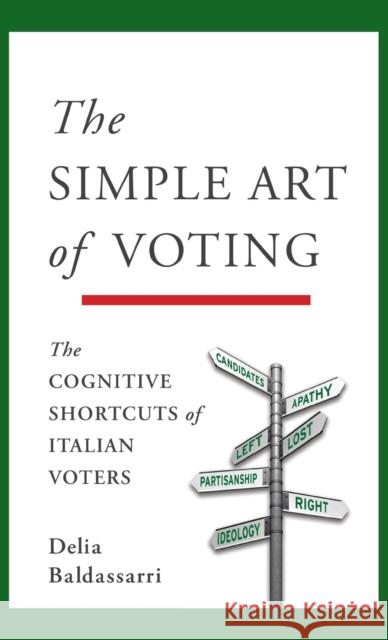The Simple Art of Voting: The Cognitive Shortcuts of Italian Voters » książka
topmenu
The Simple Art of Voting: The Cognitive Shortcuts of Italian Voters
ISBN-13: 9780199828241 / Angielski / Twarda / 2012 / 272 str.
Voting distills a complex decision into a deceptively simple action. During campaign seasons, the electorate faces a messy tangle of parties, leaders, and issues. How is it possible for voters to unravel it all? How do they perceive and evaluate the political landscape? How, in short, do voters choose?
Not only is voting a complex choice, but voters themselves also vary widely in their degree of interest, and involvement in politics. Too often, though, scholars have ignored this variety by focusing on a mythic "average voter." In The Simple Art of Voting, Delia Baldassarri provides a new understanding of how voting works by focusing on how choices are made given the cognitive limitations of the human mind and the environment in which decision-making takes place. Drawing on recent advances in the study of cognitive psychology, decision-making, and political cognition, Baldassarri provides a careful empirical examination of the strategies voters actually use to manage the complexity of political choice. Expressly rejecting the prevailing one-size-fits-all, "what a rational voter should do" approach, she distinguishes voters based on the cognitive shortcuts, or heuristics, they use to simplify the decision-making process. Drawing on survey data from the 1990s Italian national general elections, the book identifies four types of voters, classified not by economic interest, partisanship, or demographics, but by how they perceive and organize the political debate-from those who capably rely on nuanced ideological categories to those who, skeptical about all-things-political, prove easy prey for television broadcasters. The typology allows political scientists and sociologists to grasp the actual differences in political sophistication among citizens and to understand which factors-parties, leaders, ideology, the media-are most important to different types of voters. Proving that there is no "average" voter, The Simple Art of Voting helps us make sense of the various ways in which citizens themselves make sense of- and make "simple"- the complex world of politics.










